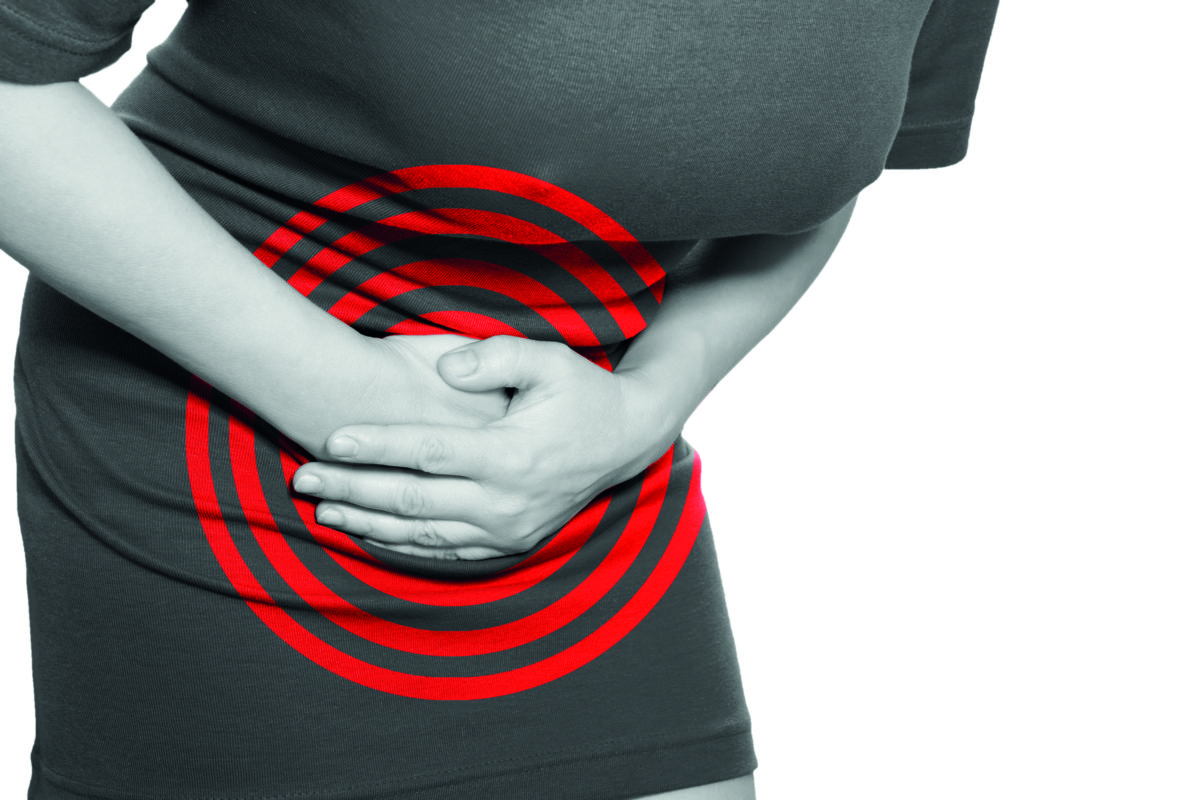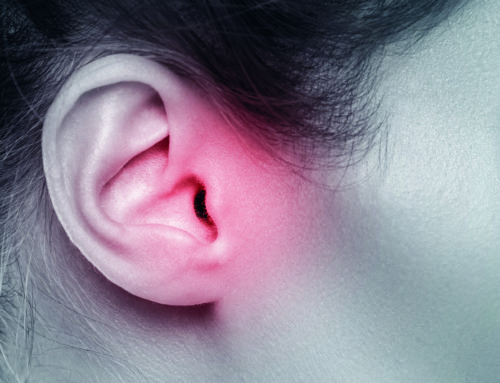Irritable Bowel Syndrome (IBS) affects up to 20 per cent of the population – around 12 million people – and for those living with the condition, it can be extremely debilitating and isolating. Tying in with IBS Awareness Month’s recent arrival, Dr Simon Smale, Gastroenterologist and Medical Adviser to The IBS Network, discusses the condition, diagnosis, and treatment options.
Epidemiology
IBS is common, in which one-in-five people will experience some symptoms. Many patients with the condition will attempt to self-manage, trying to identify their dietary and environmental triggers, while others will consult their pharmacist, general practice, or seek expert opinion from dietetic or other professionals.
IBS appears to affect women more commonly than men – although men are less likely to seek help from their GP or pharmacist. Although it often presents in young people, it may occur at any age.
What is IBS?
IBS is a chronic disorder characterised by abdominal pain and change in bowel habit as a consequence of abnormal visceral sensation and / or motility, arising as a result of abnormalities within the enteric or central nervous systems, or both. Usually this occurs in the absence of ‘organic’ disease, but association with other gastrointestinal disease is common.
Disturbances in the gastrointestinal microbiome have been identified in patients with IBS, and it is often the case that symptoms may be triggered by events which lead to changes in microbiome, emotional context, and enteric nervous function in tandem.
Diagnosis
The diagnosis of IBS should be considered in any patient presenting with the combination of abdominal pain, altered bowel habit, and / or abdominal bloating. Patients may complain of constipation, diarrhoea, or may fluctuate between the two. In order to meet the current diagnostic criteria, patients should have had symptoms for at least six months, although patients with identical symptom complexes for a shorter period are clearly likely to have similar pathology, while not strictly meeting the current diagnostic criteria. Many patients also complain of associated symptoms, such as faecal urgency and incomplete evacuation, and extra gastrointestinal symptoms, including fatigue and poor concentration.
In all patients with symptoms consistent with a diagnosis of IBS the presence of ‘red flags’ or symptoms that may suggest another pathology should be specifically sought and excluded.
Red flags include a new change in bowel habit lasting for more than six weeks in a person aged 60 years or older, the occurrence of rectal bleeding, unexplained weight loss, and a history of ovarian or bowel cancer within the immediate family. If any red flags are present they should be explored and further details sought. An assessment should then be made, and consideration given as to whether a referral to a gastroenterologist should be undertaken.
In patients who are presenting for the first time, a number of routine tests should be arranged, including a full blood count, to exclude anaemia, coeliac serology, inflammatory markers, and probably a faecal calprotectin. The reason for undertaking these investigations is to ensure that organic disease which requires specific investigation or therapy is not missed. Inflammatory Bowel Disease, occult neoplasia, and coeliac disease can all mimic many of the symptoms of IBS. However, in the context of a suggestive history, in the absence of red flags, if these investigations have been normal they do not need to be repeated; nor do patients with typical symptoms require further invasive endoscopic investigations.
Treatment Options and Management of IBS
While healthcare professionals have an important role in excluding other disease, and in providing education and empowerment for people who are struggling with their symptoms, people with IBS should be encouraged to take an active role in identifying their individual symptom triggers and in managing the dietary, lifestyle, and psychological factors which may exacerbate their symptoms.
The IBS Network
The IBS Network is the national charity that supports people in self-managing their IBS. People can be confident that the information is from a trusted source as the charity works alongside specialist healthcare professionals working in the NHS. Medicines are not usually the mainstay of effective management for people with IBS, but rather should be used to target and alleviate specific symptoms.
Diet Management
Approximately 40 per cent of people with the condition will already recognise dietary triggers. For many, a dietary review and basic advice and support may be sufficient to alleviate symptoms. Initial review should assess the frequency of meal and food intake and make sure that common precipitants are minimised. People with IBS should be encouraged to eat regularly and not leave long gaps between meals.
Common dietary triggers include caffeine, fizzy drinks – which often cause bloating, alcoholic beverages, and diet drinks that often contain indigestible sugars that may ferment within the large bowel and cause bloating and erratic bowel habit. Foods containing resistant starches, commonly encountered in some pre-prepared and processed meals, may also reach the large bowel where they may be fermented by colonic bacteria and cause similar symptoms. Reducing these foodstuffs where they form a large part of the diet may be sufficient to relieve symptoms.
If diet remains a likely trigger then the expert support of an appropriately trained healthcare professional (such as a dietitian) should be sought to explore the possibility of exclusion diets.
Common exclusion diets include those excluding wheat, dairy produce, or FODMAPs (fermentable oligosaccharides, disaccharides monosaccharides and polyols) – but these are advised to be undertaken with the support of a dietitian.
Professional Support
Professional support from an appropriately trained individual is key, not necessarily because these things are hard to exclude, although a low FODMAP diet is very challenging to execute well, but because all exclusion diets should be continued for a limited period. Therefore they require the structured re-introduction of foods to ensure that the diet is replete in the required nutrition, while avoiding the provocation of symptoms.
Good Sleep Hygiene and Relaxation
Diet is clearly important, but other lifestyle factors also influence the genesis of symptoms in IBS. We can’t always influence the stresses that we face, however, a number of factors can exacerbate symptoms, including poor sleep, and lack of exercise and relaxation. These three factors are inextricably linked to each other and to the normal functioning of the gut.
For people who are sleeping poorly, good sleep hygiene is important. Several online apps are available to support patients in this regard. Similarly, it is important for patients to find time to relax. The NICE guidance suggests that we should all find 20 minutes to relax on a daily basis, and there are numerous apps available to try and facilitate this; while some may simply prefer to relax with a good book.
Regular Exercise
Exercise is underrated as a therapy. Again the national guidance advises we take 150 minutes of exercise (that makes us slightly short of breath) every week. This often aids bowel habit, sleep, and relaxation.
Nevertheless some forms of exercise may provoke urgency, in which case it is best for people to either be near an accessible toilet or to find forms of exercise that don’t provoke urgency. If patients are currently taking no regular exercise then they should start slowly and increase the length and frequency of exertion slowly, mindful of any co-morbidities.
Psychological Intervention
Psychological intervention may also be of benefit, and a range of psychological treatments have been shown to be effective. In general, psychological interventions may be simple, or more complicated for those with more complex psychological disease. In general, one-in-four to one-in-five people with IBS will benefit from psychological intervention. This is a similar number needed to treat as for antidepressants.
Medication
A number of drugs are available to treat IBS. While these are targeted at specific symptoms, they broadly fall into three overlapping categories as follows: drugs which affect bowel sensitivity, such as peppermint oil; and drugs which affect bowel motility and stool consistency. These can be sub-classified into aperients, antidiarrheals – such as loperamide – and anti-spasmodics, such as mebeverine, alverine, or hyoscine butylbromide. In general, lactulose should be avoided, since it is a FODMAP and tends to cause bloating and occasionally abdominal pain. Often PEG based laxatives such as Laxido or Movicol are a good starting point for patients with constipation. In such people, measured regular use combined with lifestyle change is a better approach than sporadic use of large doses which often leads to oscillation between loose and constipated stools.
Lastly a number of drugs may affect the nervous processing of visceral sensation and can be used to modulate abdominal pain. These often have side-effects that alter bowel habit so this needs to be borne in mind when they are prescribed. There is reasonable evidence for the use of tricyclics, such as amitriptyline, at a dose of 10mg at night (increasing to a maximum dose of 30mg), but people need to be made aware that such drugs may have significant side-effects. Medication which has no clear benefit should be stopped.
Probiotics
Probiotics are not drugs, however, there is a growing body of evidence to support their use. The effects are likely to be strain specific so if after a month people have seen no benefit it is sometimes worth trying an alternative. The commonest side-effect is bloating. Gut-directed hypnotherapy is a well-established intervention with a good evidence base but unfortunately is only available in a limited number of areas.
Summary
In summary, IBS is a common condition affecting one-in-five of the population, which presents with symptoms of abdominal pain, bloating, and change in bowel habit, often associated with other systemic symptoms. The diagnosis can usually be confirmed by a careful history and examination, which excludes red flag symptoms, combined with non-invasive testing (coeliac serology, bloods, and faecal calprotectin), to exclude conditions that commonly present with similar symptoms.
Symptom triggers are often varied and difficult to elucidate clearly, but a range of treatments are available to help address the often intrusive and upsetting symptoms that disrupt the lives of many people living with the condition.
People may be signposted to www.theibsnetwork.org for advice and ongoing support.
About The IBS Network Charity
The IBS Network is the national charity that helps people living with IBS and has provided support to those with the condition and to healthcare professionals for over 27 years.
Funding for the charity is received from a number of sources including annual memberships and an online shop for purchasing the Can’t Wait card, radar keys, and other useful aids. The charity receives no funding from the government or NHS and relies wholly on donations.
Members of the charity’s community can gain access to a whole range of services from just £2 / month, including the IBS Self-Care Programme, a specialist IBS nurse helpline, individual advice from healthcare professionals, a growing network of support groups, an online forum, plus factsheets, research, and updates via the charity’s magazines, email newsletters, and other supporting material.
For more information, or to become a member, get in touch via the following contact details:
Email: info@theibsnetwork.org
Tel: 0114 272 3253
Website: www.theibsnetwork.org
Twitter: www.twitter.com/IBSnetwork
Facebook: www.facebook.com/TheIBSNetwork
Linkedin: www.linkedin.com/company-beta/4601772
Address: The IBS Network, Unit 1.16 SOAR Works, 14 Knutton Road, Sheffield, S5 9NU








